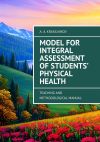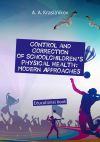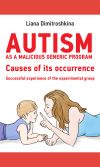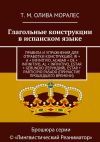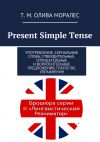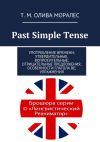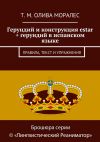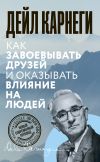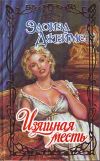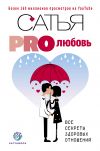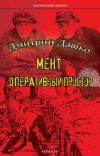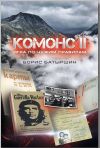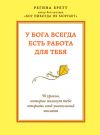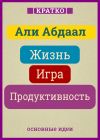Текст книги "Пособие по теории и практике перевода"
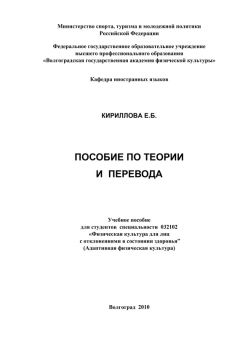
Автор книги: Елена Кириллова
Жанр: Учебная литература, Детские книги
сообщить о неприемлемом содержимом
Текущая страница: 2 (всего у книги 10 страниц) [доступный отрывок для чтения: 2 страниц]
ГЛАВА 2
ЛЕКСИКО-ФРАЗЕОЛОГИЧЕСКИЕ АСПЕКТЫ ПЕРЕВОДА
§ 4
ПЕРЕВОД МНОГОЗНАЧНЫХ СЛОВ
Большинство слов в английском языке имеют несколько значений. Одно слово может иметь до 10 значений и более.
Например:
record – запись, летопись, учет, регистрация, данные, характеристика, протокол, рекорд, позиция;
dramatic – драматичный, драматический, яркий, неожиданный, впечатляющий, важный ;
realize – выполнять, реализовать, представлять себе, осознавать;
progress – прогресс, успех, достижение, развитие.
Эти слова могут иметь другие оттенки значения, и в зависимости от контекста они будут переводиться иначе.
Часто одна форма слова может являться разными частями речи.
Например , слово «sound» имеет значения
как существительное:
звук; шум, громкость, смысл, значение, суть, содержание;
как глагол :
звучать, издавать звук; звучать, казаться; напоминать, создавать впечатление; возвещать, провозглашать; произносить;
как прилагательное:
здоровый, крепкий, неповреждённый; прочный, устойчивый, стабильный, надёжный, платёжеспособный, правильный; здравый; благоразумный; крепкий, глубокий (о сне); откровенный, прямой, честный;
как наречие:
вполне, совершенно, в полной мере; крепко (о сне).
Определить, какое из значений подходит в каждом конкретном случае, можно лишь с помощью контекста. Часто контекст не ограничивается пределами словосочетания, одного или двух-трех предложений. При переводе приходится учитывать более широкий контекст – несколько предложений, абзац, а иногда и весь текст в целом.
А при переводе многозначных спортивных терминов нельзя обойтись без владения специальной лексикой на русском языке. Выбор значения будет зависеть от того, о каком виде спорта идет речь.
Например:
score/scoring – может переводиться
– счет (to win with the score 3:1 – выиграть со счетом 3:1) (футбол)
– оценка (the subjectivity of scoring – субъективность оценки)
– балл (a skater’s total score – общая сумма баллов фигуриста)
– очко (a scoring penalty – штрафное очко)
race/racing
– гонка (boat race – гонка на лодках, motor racing – автогонки, motor-cycle racing – мотогонка)
– спуск (the speed races – скоростной спуск, giant slalom racing)
– заезд (Races can be lost in the initial push but are rarely won there. – Результаты заездов (бобслей) определяются скоростью, набранной экипажем на стартовом участке разгона.)
– забег (the 800m race – забег на 800 м)
Таким образом, переводчик всегда должен обращаться к контексту для раскрытия значения слова и адекватной его передачи в переводе.
Задание 1.
Исходя из контекста, определите, в каком из указанных значений употребляется слово sound: невредимый, глубокий, крепко, звуковой, произносить, благоразумный, звук.
1. He did not feel well, but some nights he still slept sound.
2. The «h» in «hour» is not sounded.
3. He gave me a sound piece of advice.
4. His sleep was sound and undisturbed.
5. Someone who has hearing loss or impairment may be able to hear some sounds or nothing at all.
6. The inner hair cells send the sound information to the hearing nerve.
7. We came back safe and sound.
Задание 2.
Выпишите из англо-русского словаря значения и примеры употребления слов injury, treatment, hand, test.
Задание 3.
Переведите предложения, обращая внимания на различные значения слова order.
1. Robby has difficulty doing anything that requires more than 3 steps and often forgets the order of the steps.
2. Government must provide reasonable accommodation to people with disabilities in order to allow them participation in sports and recreation programs.
3. Has the waiter taken your order?
4. At the opening ceremony of the Olympic Games the national teams march in alphabetical order.
5. The doctor had ordered as much fresh air as possible.
6. I ordered up two ham sandwiches.
7. You should follow your doctor’s order.
8. The State Central Order of Lenin Institute of Physical Culture was founded in 1920 and since that time it has been playing the leading role in the development of sports in Russia.
Задание 4.
Найдите в англо-русском словаре значения слова sign. Какое значение имеет это слово в данном тексте? Переведите текст письменно со словарем.
MEDICAL SIGN
A medical sign is an objective indication of some medical fact or characteristic that may be detected by a physician during a physical examination of a patient.
Signs may have no meaning for, or even be noticed by, the patient, but may be full of meaning for the physician, and are often significant in assisting a physician in diagnosis of medical condition(s) responsible for the patient's symptoms.
Examples include elevated blood pressure, a clubbing of the fingers (which may be a sign of lung disease, or many other things).
Задание 5.
Найдите в англо-русском словаре значения слова goal. Какое значение имеет это слово в данном тексте? Переведите текст письменно со словарем.
Setting goals is the best way to achieve a successful rehabilitation outcome. When starting physical therapy, you must think what is it that you want to accomplish at the end of your program. The goals you set should be important to you. However, they must also be realistic and attainable. Your physical therapist will then work with you to devise an appropriate treatment program to help achieve your rehabilitation goals.
Задание 6.
Какое значение имеет слово goal в данном тексте? Переведите текст письменно со словарем.
The athletes attempt to throw the ball over the goal line at the opposite end of the court, thus scoring a goal. Defending players try to gain possession of the ball, by putting themselves in between the thrower and the goal. When a defending player gains possession, it is then his or her team's turn to throw at the opposing team's goal.
Задание 7.
Найдите в англо-русском словаре значения слов result, cause, state. Какое значение имеют эти слова в данном тексте? Переведите текст письменно со словарем.
WHAT IS A TRAUMATIC BRAIN INJURY?
A brain injury can be defined as a craniocerebral injury that results from initial sudden forces levied to the head and secondary brain damage (e.g., raised intracranial pressure), which leaves residual disabilities.
According to the Brain Injury Association, traumatic brain injury is an insult to the brain, not of a degenerative or congenital nature but caused by an external physical force, that may produce a diminished or altered state of consciousness, which results in an impairment of cognitive abilities or physical functioning. It can also result in the disturbance of behavioral or emotional functioning. These impairments may be either temporary or permanent and cause partial or total functional disability or psychosocial maladjustment.
Most traumatic head injuries are caused by motor vehicle accidents and occur in males ages 15-24. Further, the injuries that result from these accidents are usually closed injuries, where the brain crashes against the skull causing diffuse damage. The complications that follow can be categorized under three headings: psychomotor (physical/movement), affective (emotion), and cognitive (thinking, reasoning).
§ 5
ПЕРЕВОД ИНТЕРНАЦИОНАЛЬНЫХ СЛОВ
Интернационализмы – это такие слова, которые в различных языках имеют один корень. Они похожи и внешне, и по смыслу. Чтобы понять значение такого слова, достаточно прочесть его вслух латинскими буквами, и вы услышите знакомую корневую основу, существующую в русском языке.
Например:
(англ.) meningitis – читаем вслух: менингитис – (рус.) менингит
(англ.) pathogenic – читаем вслух: патогеник – (рус.) патогенный
(англ.) proportion – читаем вслух: пропорт(ц)ион – (рус.) пропорция
Чаще всего слова-интернационализмы, встречающиеся в европейских языках, происходят от латинских и греческих слов. Для современной медицины латинский и греческий являются классическими языками, откуда заимствовано большинство медицинских терминов.
Например:
amputation – ампутация (лат. amputatio отсечение)
infection – инфекция (infectio; лат. inficio, infectum напитывать, заражать)
depression – депрессия (depressio; от лат. deprimo, depressum понижать, подавлять, угнетать;)
diet – диета (греч. diaita образ жизни, режим питания)
organ – орган – (органе-; греч. organon орудие, орган; лат.organismus организм)
symptom – симптом (symptomum, symptoma; греч. symptoma совпадение, признак)
syndrome – синдром (syndromum; греч. syndrome стечение признаков болезни)
diabetes – диабет (diabetes; греч. diabetes, от diabaino проходить сквозь, протекать)
diagnosis – диагноз (diagnosis; греч. diagnosis распознавание, диагноз; диа– + gnosis познание, знание)
analysis – анализ (греч. analysis разложение, расчленение)
arthritis – артрит (arthritis; артр– греч. -ит) – воспаление сустава или некоторых его элементов.
meningitis – менингит (meningitis; менинг– греч. + -ит) – воспаление оболочек головного и (или) спинного мозга;
anemia – анемия (anaemia; ан– + греч. haima кровь; син. малокровие)
orthopedia – ортопедия (orthopaedia; орто– + греч. paideia воспитание, обучение)
dystrophy – дистрофия (dystrophia; дис– + греч. trophe питание; син.: дегенерация, перерождение)
dystony – дистония (dystonia; дис– + греч. tonos напряжение)
dermatology – дерматология (дермато– + греч. logos учение, наука; син. болезни кожные)
toxicology – токсикология (токсико– + греч. logos учение, наука)
При сравнении словообразовательных элементов интернациональных слов можно выявить некоторые соответствия в английском и русском языках.
Например :
стоящий в конце английского слова элемент
1) -tion /sion соответствует –ция/сия в русском языке (depression – депрессия);
2) -ture соответствует -тура в русском языке (structure – структурa);
3) – logy соответствует -логия в русском языке (toxicology – токсикология);
4) -ics соответствует -ка или -ия в русском языке ( pedagogics – педагогика);
5) -is не следует произносить, и в этом случае останется основа слова, знакомая вам в русском языке (scleros-is – склероз).
Задание 1.
Переведите слова-интернационализмы без словаря, обращая внимание на словообразовательные элементы.
a) -tion federation, infection, amputation, operation, publications, rehabilitation, adaptation, proportion, function, dysfunction, position, classification, consultation;
b) -ture musculature, contracture, structure, temperature;
c) -gy (-y) neurology, ophthalmology, endocrinology, pharmacology, toxicology, gastroenterology, traumatology, pathology, physiology, dermatology, cardiology, rheumatology, hematology, endocrinology, immunology, oncology, pulmonology, otolaryngology, etiology, urology, gynecology, dermatology, neuropsychology, allergy, psychiatry;
d) -ics genetics, paediatrics, orthopedics;
e) -is psoriasis, thrombosis, diagnosis, necrosis, sclerosis, dermatitis, meningitis, pyelonephritis, pericarditis, appendicitis, cholecystitis
Задание 2.
Переведите слова, не пользуясь словарем.
interest, athlete, Olympic, record, medal, discipline, professionals, micro-organisms, diagnose, appetite, stress, balance, syndrome, symptom, gangrene, trauma, atrophy, dystrophy, organism, spasm, doping, equivalent, intellectual, adaptive, person, medical, medicine, categories, to demonstrate, to control
Задание 3.
Переведите словосочетания, не пользуясь словарем.
anti-doping culture, ethical principles, specific symptoms, preventive anti-doping programs, a central role, special functions, positive and negative effects, social phenomenon, catastrophic reactions, immune system, muscular dystrophy, chronic hypoxia, venous thrombosis, alcohol intoxication
Задание 4.
Переведите словосочетания без словаря, догадываясь о значении незнакомых слов по корневой основе.
International Sports Federation for Persons with Intellectual Disability; external and internal factors; an abnormal condition of an organism; isolated symptoms; atypical variations of structure and function; Conference on Doping; the initiative of the IOC; doping in sport; normal functioning; biological, social, and psychological factors; internal dysfunctions; pathogenic microbial agents, viruses and bacteria
Задание 5.
Переведите названия болезней, не пользуясь словарем.
Paralysis, Amputation, Multiple sclerosis, Cerebral Palsy, Muscular dystrophy, Arthritis, Rheumatoid arthritis, Osteoarthritis, Cataract, Multiple sclerosis, Cystic fibrosis, Tuberculosis, Diabetes, Hypoglycemia, Schizophrenia, Neurosis, Dyslexia, Down syndrome, Hyperactivity, Autism, Depression, Osteopenia, Appendicitis, Syphilis, Psoriasis, Glaucoma, Lymphocytosis, Phobia
Задание 6.
Выпишите из текста и переведите на русский язык слова– интернационализмы. Переведите текст письменно со словарем.
DISEASE
A disease or medical problem is an abnormal condition of an organism that impairs bodily functions, associated with specific symptoms and signs. It may be caused by external factors, such as invading organisms, or it may be caused by internal dysfunctions, such as autoimmune diseases.
In human beings, "disease" is often used more broadly to refer to any condition that causes extreme pain, dysfunction, distress, social problems, and/or death to the person afflicted, or similar problems for those in contact with the person. In this broader sense, it sometimes includes injuries, disabilities, disorders, syndromes, infections, isolated symptoms, deviant behaviors, and atypical variations of structure and function, while in other contexts and for other purposes these may be considered distinguishable categories.
Задание 7.
Выпишите из текста и переведите на русский язык слова– интернационализмы. Переведите текст письменно со словарем.
MUSCULAR DYSTROPHY
A disease of the muscular system characterized by weakness and atrophy of the muscles of the body. The disease is progressive and remission does not occur. The rate of progression is different for each set of muscles.
TYPES OF MUSCULAR DYSTROPHY
Duchenne: Occurs primarily in males and presents itself between the ages of 3 and 7 years. This type of muscular dystrophy is most common and most severe. This type affects the pelvic girdle and then moves to the shoulder girdle.
Facioscapularhumeral: The most common form of muscular dystrophy in adults. This type affects both genders equally. Appears in adolescence but is not usually diagnosed until adulthood. Characterized by progressive weakness of the shoulder muscles and weakness of the face muscles. Life span for individuals with this type is normal.
Limb-Girdle: Occurs anytime from age 10 and on. Both genders are equally affected. Early symptoms include difficulty in raising the arms above shoulder level or difficulty in climbing stairs. Initially muscle weakness is either in the shoulder girdle muscles or the hip and thigh muscles.
_______________________
Duchenne – дюшенна
Facioscapularhumeral – плече-лопаточно-лицевая
Limb-Girdle – тазова-плечевая
§ 6
«ЛОЖНЫЕ ДРУЗЬЯ ПЕРЕВОДЧИКА»
Cлова-интернационализмы часто могут не только помогать, но и мешать правильному переводу. Недаром их называют «ложными друзьями», так как в силу своего сходства по звучанию и написанию с хорошо знакомыми переводчику словами направляют его по ложному пути. Переводчик невольно вспоминает этимологически тождественное русское слово и упускает из виду, что его значение и употребление часто не совпадают с английским.
Например :
data – данные, сведения (а не дата)
list – список (а не лист)
focus – фокусировать, нацеливать, сосредоточить (а не цирковой фокус)
physician – врач-терапевт (а не физик)
fabric – ткань (а не фабрика)
family – семья (а не фамилия)
magazine – журнал, склад, магазин для патронов (а не магазин)
mark – метка, пятно, знак, оценка (а не марка)
mayor – мэр (а не майор)
principal – начальник, директор школы (а не принцип)
repetition – повторение (а не репетиция)
spectacles – очки (оптика) (а не спектакли)
trace – след (а не трасса)
condition – состояние (а не кондиция)
Некоторые ошибки в переводе интернациональных слов прочно укоренились в переводческой практике.
Например :
Слово practically, имеющее значение «фактически», часто переводится словом «практически». Это неправильно, т. к. в русском языке слово «практически» сопоставляется со словом «теоретически».
Слово extremely почти всегда переводится как «экстремально», хотя у него есть значение «чрезвычайно, необычайно».
Слово dramaticaly обычно переводится словом «драматически», не принимая во внимание другие его значения «резко, существенно, значительно».
Слово phylosophy почти всегда переводится словом «философия», хотя в научных статьях оно чаще встречается в значениях «основные положения, концепция, учение».
Слова, относящиеся к категории «ложных друзей переводчика», условно можно разделить на 3 группы.
К первой группе относятся слова, похожие по звучанию и написанию на русские, но отличающиеся от них по значению: accurate – точный, а не аккуратный; ambulatory – крытая галерея, а не амбулатория; list – список, а не лист; cereal – хлебный злак, каша, крупа, а не сериал; codex – старинная рукопись, рецептура, а не кодекс; corpse – труп, мёртвое тело, а не корпус; honor – слава, почёт, а не гонор; intelligence – ум, интеллект, а не интеллигенция.
Ко второй группе принадлежат слова, которые являются «ложными друзьями» только для отдельных своих значений: аrmature – броня, якорь электромотора и арматура (но не в железобетоне); champion – поборник, защитник и чемпион; conservatory – оранжерея и консерватория; control – управление и контроль; partizan – партизан и приверженец, фанатик; goal – цель, ворота и гол; artist – художник и аpтист; original – настоящий, подлинный и оригинальный.
К третьей группе относятся слова, которые вводят в заблуждение из-за своего внешнего сходства: complement – дополнение, комплект и compliment – похвала; now – сейчас и new – новый; rich – богатый и reach – достигать, добиваться.
Переводчик должен быть очень внимателен при переводе таких слов. Невнимание к буквенной форме слова приводит к неправильному переводу.
Задание 1.
Прочитайте вслух выделенные слова сначала по буквам английского алфавита, а затем полностью. Запомните их написание.
winner (победитель) – winter (зима)
word (слово) – world (мир)
team (команда) – time (время, раз)
faculties (факультеты) – facilities (сооружения)
new (новый) – now (сейчас)
many (много) – main (главный)
pupil (ученик) – people (народ, люди)
weak (слабый) – week (неделя)
meat (мясо) – meet (встречать, встреча)
feature (основная черта) – future (будущее)
athletes (атлеты, спортсмены) – athletics (атлетика)
gymnasts (гимнасты) – gymnastics (гимнастика)
rich (богатый) – reach (достигать, добиваться)
some (несколько) – same (тот же самый)
very (очень) – vary (изменяться, разниться)
think (думать) – thing (вещь, вещество)
include (включать) – conclude (завершать)
host (хозяин) – hoist (поднимать)
heart (сердце) – hard (тяжело, упорно)
Задание 2.
Переведите предложения на русский язык, обращая внимание на выделенные слова.
1. I became a winner at the last winter championships.
2. The word “world” means a planet.
3. Our team won the titles at the Olympic Games many times.
4. Our academy has three faculties and many sports facilities.
5. A new world record in swimming is being set now.
6. Gymnasts take up gymnastics in the gymnasia.
7. Athletes take up athletics at the stadium.
8. There are many sporting awards but the main one is the Olympic title.
9. Stop training hard to prevent heart disease!
10. The patient was very weak last two weeks.
Задание 3.
Переведите предложения на русский язык, обращая внимание на выделенные слова.
1. He began to make a list of different activities he was to take part in.
2. Through modern technology, water therapy is found to be the most natural way of promoting food health and longevity in the 21st century.
3. The main focus of Yoga exercise is to achieve a better harmonization and synergy between individual body systems and functions.
4. Therapeutic exercise in a pool is done as a group exercise and it uses the relaxing effect of warm water in combination with movement therapy, which is due to the ease of floating in water.
5. The water environment is very suitable for treatment of static impairments and incorrect body position.
6. Bowls is a precision sport where the goal is to roll slightly radially asymmetrical balls (called bowls) closer to a smaller white ball (the «jack» or «kitty») than one's opponent is able to do.
7. The effect of respiratory physiotherapy depends on the cooperation of the patient, the technique and the degree of severity of bronchiolar stenosis.
8. At a major competition, classifiers watch athletes training and competing and may use the observations together with other data to decide whether or not an athlete needs to be re-classified.
9. Bicycles, Tricycles, Tandems and Handcycles must conform to the technical regulations of the International Cycling Union (UCI) and IPC Cycling Rules.
10. Race distances vary according to athlete classification.
11. The penalty for missing a gate in Slalom is disqualification.
12. Athletes' times determine the order of finish.
13. The course of Super Giant Slalom is shorter than Downhill but longer than Giant Slalom and Slalom.
Задание 4.
Переведите текст письменно со словарем. Обратите особое внимание на слова localized, generalized, global.
PARALYSIS
Paralysis may be localized, or generalized, or it may follow a certain pattern. For example, localized paralysis occurs in Bell's palsy where one side of the face may be paralyzed due to inflammation of the facial nerve on that side. Patients with stroke may be weak throughout their body (global paralysis) or have hemiplegia (weakness on one side of the body) or other patterns of paralysis depending on the area of damage in the brain. Other patterns of paralysis arise due to different lesions and their sequelae. For example, lower spinal cord damage from a severe back injury may result in paraplegia, while an injury higher up on the spinal cord, such as a neck injury, can cause quadriplegia.
Задание 5.
Переведите текст письменно со словарем. Обратите особое внимание на слова model, condition, collection, aspects.
ILLNESS
Illness and sickness are generally used as synonyms for disease. However, this term is occasionally used to refer specifically to the patient's personal experience of his or her disease. In this model, it is possible for a person to be diseased without being ill, (to have an objectively definable, but asymptomatic, medical condition), and to be ill without being diseased (such as when a person perceives a normal experience as a medical condition, or medicalizes a nondisease situation in his or her life). Illness is often not due to infection but a collection of evolved responses, sickness behavior, by the body aids the clearing of infection. Such aspects of illness can include lethargy, depression, anorexia, sleepiness, hyperalgesia, and inability to concentrate.
Внимание! Это не конец книги.
Если начало книги вам понравилось, то полную версию можно приобрести у нашего партнёра - распространителя легального контента. Поддержите автора!
